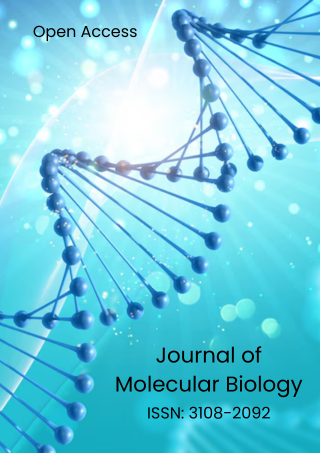Editorial Board
At Confmeets Journals, the Editorial Board serves as the cornerstone of academic integrity and excellence. Comprising distinguished scholars and professionals across various disciplines, the board ensures that each manuscript undergoes a rigorous peer-review process aligned with the journal's mission.
Our board members are committed to upholding the integrity, quality, and ethical standards of scholarly publishing. They collaborate closely with authors, reviewers, and the Confmeets editorial team to uphold ethical practices, promotes transparency, and guarantee that every published article contributes meaningfully to the advancement of knowledge in its field.
Editor-in-Chief

George Koliakos PhD View Profile
Editor-in-Chief Institutional Profile LinkDepartment: Department of Biological Sciences and Preventive Medicine
Affiliation: Biohellenika Biotechnology Company, Greece
Designation: Professor
Email: koliakos@biohellenika.grCountry: Greece
George Koliakos was born in Thessaloniki, Greece in 1956. He earned his MD in 1979 and his PhD in Biochemistry in 1983 from the Medical School of Aristotle University. He specialized in Nuclear Medicine between 1983 and 1987. His academic journey includes postdoctoral research at the University of Minnesota (1987–1989) and a visiting professorship at the University of Miami (1993). From 1989 to 2023, he served as a faculty member at the Medical School of Aristotle University, where he was Professor of Biochemistry and is now Professor Emeritus. He directed the Joint Postgraduate Program in “Stem Cell and Regenerative Medicine” in collaboration with Democritus University of Thrace (2019–2023). In addition to serving as Editor of the Aristotle Biomedical Journal and President of the Hellenic Society for Regenerative Medicine Research, he held several key academic leadership roles, including Director of the Laboratory of Clinical Biochemistry at AHEPA University Hospital and Director of the Laboratory of Biological Chemistry at Aristotle University. He also led the Department of Biological Sciences and Preventive Medicine across multiple terms. Outside academia, he co-founded Hippocrates Diagnostic Center (1991–2006), served as CEO of the Hellenic National Research Center Stem Cell Bank (2007–2014), and is currently the Founder, President, and CEO of Biohellenika Biotechnology Company. A prolific researcher, Dr. Koliakos has co-authored over 200 peer-reviewed publications with more than 6,000 citations, holds eight patents, and has been principal investigator on 17 national research grants.

Dr Vivek N Upasani Ph.D View Profile
Editor-in-Chief Institutional Profile LinkDepartment: Microbiology
Affiliation: Chief Scientist, Genexplore Diagnostics and Research Centre Pvt Ltd, Ahmedabad
Designation: Chief Scientist
Email: vivekupasani@genexplore.co.inCountry: India
Dr. Vivek N. Upasani, is a well known microbiologist from India with over four decades of experience in research and academic leadership. He currently serves as a Chief Scientist at Genexplore Diagnostics and Research Centre Pvt. Ltd., Ahmedabad. He has coordinated and led multiple DBT, UGC, and GUJCOST-funded research projects and schemes. Dr. Upasani has conducted postdoctoral research in Canada (Lipids of haloarchaea), and the USA (Rice Biotechnology: Carotenoid biosynthesis). He has done pioneering work on the isolation and characterization of haloarchaea (natronobacterium /natrialba) from Sambhar Lake, Rajasthan, India. His research also includes the genomic study of halophilic archaea, studies on halophilic microalgae from Indian saline ecosystems, hydrocarbon degradation, etc. He has supervised five Ph.D. candidates to completion, published over 48 research papers, authored 7 books, and contributed whole genome sequences to international repositories and deposited microbial cultures in ATTCC, NCIMB, NCCS, etc. An active member of several professional bodies, including the American Society for Microbiology and the Microbiologists Society of India. He is also a certified Lead Auditor (FSSC 22000). He continues to mentor, review and collaborate in national and international scientific communities.
Editorial Members
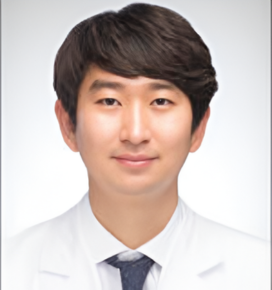
Deokho Lee PhD View Profile
Editorial Member Institutional Profile LinkAffiliation: Project Instructor, Keio University School of Medicine, Tokyo
Department: Department of Ophthalmology
Designation: Project Instructor
Email: deokho.lee@keio.jpCountry: Japan
Dr. Deokho Lee is an ophthalmic medical researcher specializing in hypoxia/ischemia-related vision loss, retinal degeneration, and neovascularization in diseases such as diabetic retinopathy, glaucoma, and age-related macular degeneration. He currently serves as a Project Instructor at Keio University School of Medicine and as a Research Professor at The Korean Institute of Nutrition, Hallym University. His expertise includes ERG, OCT, molecular biology, and cell biology, with a strong focus on developing novel therapeutic strategies and nutritional interventions for ocular diseases.
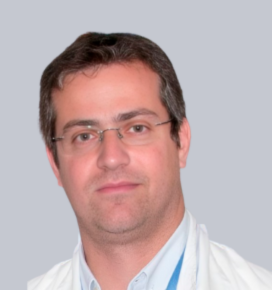
Dr Giuseppe Lanza PhD View Profile
Editorial Member Institutional Profile LinkAffiliation: General Surgery, University of Catania, Sicily
Department: Department of General Surgery and Medical-Surgical Specialties
Designation: Professor
Email: glanza@oasi.en.itCountry: Italy
Prof. Giuseppe Lanza is an Italian neurologist born in 1982 in Catania, Italy. He graduated with honors in Medicine and Surgery from the University of Catania, where he also completed his specialization in Neurology and obtained an international PhD in Basic and Applied Biomedical Sciences. He further trained as a Clinical Research Fellow at Newcastle University (UK). Currently, he serves as Full Professor and Dean of Applied Medical Sciences Techniques at the University of Catania and holds senior clinical and research leadership positions at the Oasi Research Institute – IRCCS. He has authored more than 300 scientific publications and actively serves as editor and reviewer for numerous international journals.
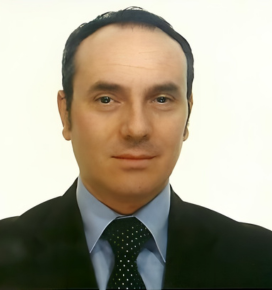
Massimo Piracci PhD View Profile
Editorial Member Institutional Profile LinkAffiliation: Health Science, Abu Dhabi University, Kansas
Department: Department of Health Sciences
Designation: Director
Email: massimo.piracci@medcarehospital.comCountry: United Arab Emirates
Massimo Piracci completed his MBBS from Roma Tor Vergata, Italy in 1992 and subsequently received his MD in Orthopedic and Traumatology from the same University in 1999. He was trained in Orthopedic Surgery in Roma Saint Eugenio Hospital and in Latina Santa Maria Goretti Hospital. From 2003 was HOD in Orthopedic and Traumatology Department in Roma Clinic Annunziatella where he did more than 10.000 surgery. He was also Football Referee for FIGC for 15 years and also external orthopedic consultant for different football team. From 2014 in UAE. He uses the most advanced technologies and biological implant (PRP, Stamina cells, Ozone Therapy) and mini invasive surgery of hip head. He treats the most of orthopedic pathology for children and adults, the most of minor and major trauma, and sport injury with advanced mini invasive technique.
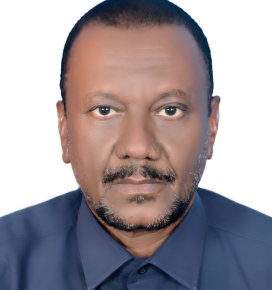
Mamoun Magzoub Mohamed Osman PhD View Profile
Editorial Member Institutional Profile LinkAffiliation: Microbiology, University of Kassala, Sudan
Department: Department of Microbiology
Designation: Professor
Email: mamounmagzoub@kassalauni.edu.sdCountry: Sudan
Dr. Mamoun Magzoub Mohamed Osman is an Associate Professor at the Faculty of Medicine, University of Kassala, Sudan. He has extensive experience in Microbiology and Parasitology and is fluent in both Arabic and English.
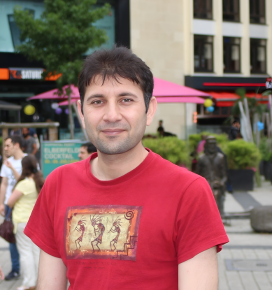
Dr Amin Ullah PhD View Profile
Editorial Member Institutional Profile LinkAffiliation: Health Biological Sciences, Abasyn University, Peshawar,
Department: Department of Health Biological Sciences
Designation: Professor
Email: draminullah@inu.edu.pkCountry: Pakistan
Dr. Amin Ullah Currently serving as an Assistant Professor at Allied Health Sciences, Iqra national university Peshawar, Pakistan, since February 2022. He has around 5 years of teaching and research experience. Dr. Amin specialty on profiling of circulatory microRNAs in hepatitis, liver disorders, COVID-19, cytomegalovirus, HIV, and other infectious diseases from both clinical epidemiological and molecular biology perspectives. In addition, I am conducting in vitro and in vivo/pre-clinical studies to evaluate the therapeutic potential of green-synthesized nanoparticles and drug-loaded nanoparticles against various cancer cell lines and rat models. He has supervised 45 M.Phil. research students and are mentoring Ph.D. candidates. He has more than 60+ publications of International and National in a well reputed journal with 300+ impact factor. His scientific activities are highly interdisciplinary, ranging from biotechnology and microbiology, diagnostic tools and computational biology. In addition, he has authored over 13 book chapters with renowned publishers, including Elsevier, Springer, and Taylor & Francis. Dr. Amin is currently serving as Chief Editor for two books under review. He also holds five international patents (Germany, UK). Beyond his research, he has contributed significantly to the scientific community by peer-reviewing manuscripts for more than 10 prestigious journals published by MDPI, Elsevier, Springer, and Wiley. In recognition of his academic excellence, Dr. Amin was awarded a fellowship under the HEC IRSIP program at the University of Cologne, Germany, in 2019.
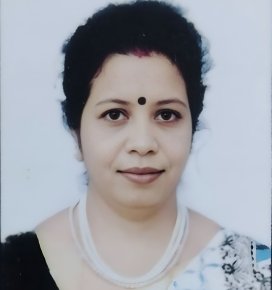
Dr Madhumita P Ghosh PhD View Profile
Editorial Member Institutional Profile LinkAffiliation: Biotechnology, Amity University, Noida
Department: Amity Institute of Biotechnology
Designation: Assistant Professor
Email: mpghosh@amity.eduCountry: India
Dr. Madhumita P. Ghosh is an Associate Professor at the Amity Institute of Biotechnology, Amity University, Noida. She earned her Ph.D. in Biotechnology from Jadavpur University, Kolkata in 2001. She conducted her postdoctoral research at the National Eye Institute (NIH, Bethesda, USA) under the mentorship of Dr. Samuel Zigler Jr., focusing on ocular disease mechanisms and cataractogenesis models.She later worked at the National Brain Research Center (NBRC), New Delhi, where she investigated retinal degeneration models in mice. Since joining Amity University in 2008, Dr. Ghosh has progressed from Senior Lecturer to Associate Professor, contributing extensively to teaching and research in Animal Biotechnology and Immunology.Her research primarily explores neuroprotection and retinal degeneration, focusing on antioxidant therapies, neuroprotective nanoformulations, and retinal precursor stem cell therapy. She has successfully led multiple DBT, DST-SERB, and ICMR-funded projects, and mentored several Ph.D. students.Dr. Ghosh has published widely in reputed journals such as Experimental Eye Research, Nature Scientific Reports, Biomedicine & Pharmacotherapy, Molecular Vision, Toxicology Letters, ACS Applied Biomaterials, and Journal of Biomolecular Structure and Dynamics. Her work has made significant contributions to understanding oxidative stress, excitotoxicity, and neuroprotective drug delivery for ocular diseases.
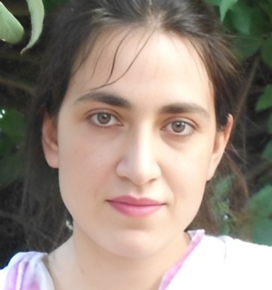
Dr Sarah Sarwar Ph.D View Profile
Editorial Member Institutional Profile LinkAffiliation: Biochemistry,Shaheed Benazir Bhutto Women University SBBWU, Peshawar, Pakistan
Department: Department of Biochemistry
Designation: Lecturer in Biochemistry
Email: sarahsarwar@sbbwu.edu.pkCountry: Pakistan
Dr. Sarah Sarwar is an accomplished biochemist and molecular biologist currently serving as a Lecturer in Biochemistry at Shaheed Benazir Bhutto Women University, Peshawar. She possesses more than 15 years of academic and research experience in the fields of molecular biotechnology, biochemistry, and bioinformatics.She earned her Ph.D. in Molecular Biotechnology from Abdul Wali Khan University Mardan, focusing on the comprehensive investigation of the leishmanicidal and pharmacological potential of Thiadiazine Thione derivatives through in-silico, in-vitro, and in-vivo approaches.Her expertise encompasses molecular docking, nanobiotechnology, enzymology, drug discovery, plant and microbial cell culture, and bioremediation.Dr. Sarwar has also contributed significantly to capacity building, organizing hands-on workshops, scientific seminars, and international conferences to promote research excellence and innovation in life sciences.
Article Processing Timeline
| 2-5 Days | Initial Quality & Plagiarism Check |
| 15 Days |
Peer Review Feedback |
| 85% | Acceptance Rate (after peer review) |
| 30-45 Days | Total article processing time |
Journal Flyer
